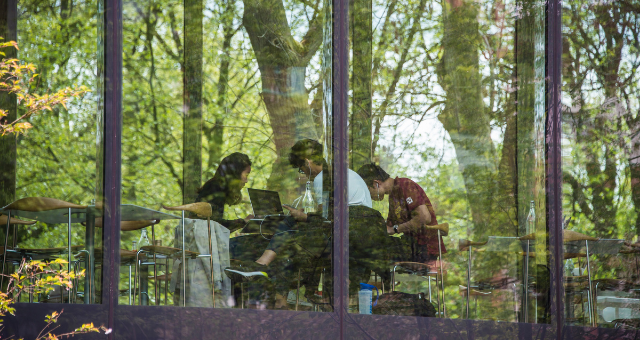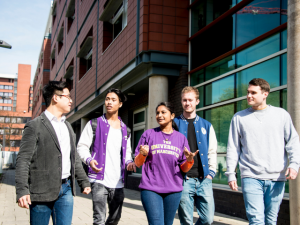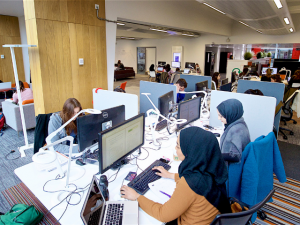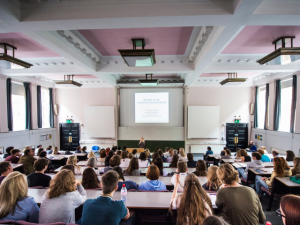
Top tips for making the most out of your course: socially and academically
This article will provide second-year BA Hons Criminology student Amy Tyley’s top five tips for making the most out of your university course, in both an academic sense and a social way. This will help you complete your degree feeling very accomplished!
1. Join group chats for your course.
This first one may not be the most obvious but join course group chats. On A-Level results day, knowing I was going to UoM, the first thing I did was join the Facebook group for my course, and I could not recommend it enough. You can find out which accommodation people are staying in and agree to go to lectures together. The first few are always pretty daunting, so it’s great to arrange to meet with someone beforehand and go together! Another benefit is that you can organize to go to freshers’ events together and get to know your course mates before the semester even starts.
Having a good relationship with your course mates is very important – it will make you feel more comfortable when contributing in lectures, it means you can discuss lecture and seminar content should you ever get stuck and it is excellent for when group work opportunities arise.
2. Do the wider reading.
The more extensive reading is SO IMPORTANT for those first-class grades. The course unit directors put together comprehensive lists of articles and journals to assist with the primary learning content. It is available in advance on the blackboard reading lists – this location will be made clear to you when you join! You want to engage with more than just the set work, note down academic scholars’ opinions, and get the unique statistics – both of these are so valuable for achieving higher grades.
Ultimately it shows your interest in the course. Lecturers recommend you spend a working week on university work, so around an extra 35-40 hours on top of lectures and seminars. This is to do the wider reading and research – it pays off in the long run, promise!
3. Try your best to engage in seminars.

The structure for the majority of humanities courses at UoM operates, so you have a lecture (2 hours) and a seminar (1 hour) each week for each module. You need to attend the lecture and gain a base understanding of the discussions involved during seminars. While your whole course will attend each lecture (around 85 people for Criminology), seminars will be broken down into smaller discussion groups of approximately 8-12 people. It is an excellent opportunity to ask questions, consolidate knowledge and engage in debates around the weekly topic. Sharing your ideas with others is very beneficial to show you fully understand, and you may even learn something new from your peers!
4. Take on a representative role.
This one proves beneficial both academically and socially! There are plenty of opportunities to become a first-year representative. (Note: this article is directed at first-year students, but this position is available for all years. The role can be applied for at the beginning of each academic year). This role involves being the main port of call for student queries and questions- equally, if lecturers need to check something, they will likely ask you first.
This helps to build a great relationship with the teaching staff and with your fellow peers. The current responsibilities involve a meeting a month with academic staff in the department to discuss student feedback and any changes to the degree structure.
It is a gratifying role to deal with your peer’s queries formally and suitably and provide the opportunity to get to know more of your course mates!
5. Attend the 9ams!!!
Left this one until last because I know this is the one you will least likely want to do! Many people joke about not attending 9am’s, particularly after a night out. Still, it’s your attendance and ability to engage which will set you apart from your peers!
Not to mention, attending the lecture in real-time will save you having to spend twice as long watching the recording and pausing it to make notes. Lectures often involve interactive tasks, and doing these on catch up does not have the same effect as there is nobody to discuss with!
Ultimately, you get out of your degree what you put in! Try your best to befriend course mates, do the more comprehensive reading and show up to lectures!






0 Comments